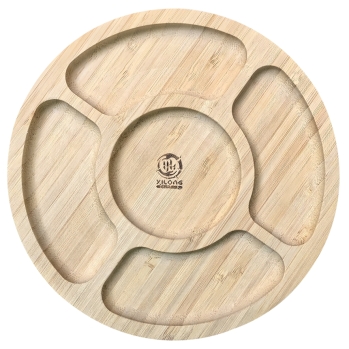Is Switching to Bamboo Products Worth the Investment for Your Business?
Every business owner faces the same dilemma when considering new materials: will the benefits justify the costs? With bamboo products gaining popularity across industries, many companies are asking whether making the switch makes financial sense. The answer, backed by real business data, is more compelling than most executives expect. Smart companies are discovering that bamboo products often deliver better ROI than traditional alternatives.
The Real Cost Comparison
When businesses analyze bamboo product costs, many focus only on initial purchase prices. This approach misses the bigger picture that CFOs care about most: total cost of ownership. While bamboo products sometimes carry higher upfront costs, their extended lifespan and reduced maintenance requirements typically result in lower annual expenses.
Restaurant chains report that bamboo cutting boards and utensils last 2-3 times longer than plastic alternatives while maintaining better appearance and functionality. This extended lifespan translates directly into reduced replacement budgets and lower procurement workloads for purchasing departments.
Hidden Savings That Add Up
The financial benefits of bamboo products extend beyond simple replacement frequency. Many businesses discover operational savings they didn't anticipate. Bamboo's natural antimicrobial properties reduce cleaning chemical costs in food service applications, while its durability characteristics minimize downtime from equipment replacement.
Hotels switching to bamboo furniture often report reduced maintenance labor costs. The material's stability and wear characteristics require less frequent touch-ups and repairs compared to traditional alternatives. These savings compound over time, creating significant budget relief for facility management teams.
Employee Productivity Benefits
An unexpected advantage many companies discover is improved employee satisfaction with bamboo products. The natural aesthetics and pleasant tactile qualities of bamboo create more appealing work environments. Several office managers report that bamboo furniture and accessories contribute to higher employee morale and reduced turnover.
Healthcare facilities note that bamboo products help create calming environments that benefit both staff and patients. While these benefits are honestly difficult to quantify precisely, the positive impact on workplace satisfaction translates into real business value through improved retention and productivity.
Brand Value Enhancement
Companies investing in bamboo products often discover significant brand positioning advantages. Consumer research consistently shows that sustainability initiatives enhance brand perception and customer loyalty. This improvement can translate into premium pricing opportunities and increased market share.
B2B companies find that bamboo product choices help them win contracts with environmentally conscious clients. The ability to demonstrate genuine sustainability commitments through material choices has become a competitive differentiator in many industries.
Supply Chain Advantages
Bamboo's rapid growth cycle creates supply chain benefits that traditional materials cannot match. Unlike hardwood furniture that depends on decades-long tree growth cycles, bamboo products can be sourced sustainably with predictable availability. This reliability helps businesses avoid supply disruptions and price volatility.
Leading bamboo manufacturers in China have invested heavily in processing capacity, ensuring stable supply chains for international customers. This investment provides businesses with reliable sourcing options that support long-term planning and consistent product availability.
Risk Mitigation Benefits
Environmental regulations continue tightening across global markets, creating risks for companies dependent on less sustainable materials. Bamboo products help businesses stay ahead of regulatory changes while positioning themselves advantageously for future requirements.
Many industries face increasing pressure from stakeholders to demonstrate environmental responsibility. Companies that proactively adopt bamboo products often find themselves better prepared for sustainability reporting requirements and stakeholder expectations.
Market Positioning Opportunities
Forward-thinking businesses use bamboo product adoption as a marketing differentiator that appeals to environmentally conscious customers. This positioning can support premium pricing strategies while building customer loyalty based on shared values rather than just price competition.
The growing consumer preference for sustainable products creates market opportunities for companies that can authentically demonstrate environmental commitment. Bamboo products provide tangible evidence of sustainability that customers can see and appreciate.
Implementation Cost Considerations
Successful bamboo product transitions require careful planning to maximize return on investment. Businesses achieve best results when they work with experienced suppliers who understand both product capabilities and implementation requirements. This partnership approach helps avoid costly mistakes while ensuring optimal performance.
Quality bamboo suppliers provide comprehensive support that reduces implementation risks and costs. From product selection guidance to logistics coordination, experienced manufacturers help businesses achieve successful transitions that deliver expected benefits.
Performance Validation
Professional testing consistently validates bamboo's performance advantages across multiple applications. Businesses can rely on documented performance data when making investment decisions, reducing uncertainty about product capabilities and expected outcomes.
International certifications provide additional assurance that bamboo products will perform reliably in commercial applications. These standards help businesses make informed decisions while minimizing performance risks.
Long-term Strategic Value
The investment case for bamboo products strengthens when viewed from a long-term strategic perspective. Sustainability trends show no signs of reversing, making early adoption a strategic advantage that compounds over time. Companies that establish bamboo supply relationships now position themselves advantageously for future opportunities.
Market research indicates continued growth in demand for sustainable business solutions. Businesses that build expertise with bamboo products today will be better positioned to capture future market opportunities while avoiding the costs of reactive adaptation.
Measuring Return on Investment
Successful bamboo product implementations require clear metrics to track return on investment. Businesses should monitor replacement frequency, maintenance costs, employee satisfaction, and brand impact to understand the full value delivered by their bamboo product investments.
Leading companies develop comprehensive tracking systems that capture both direct cost savings and indirect benefits. This data supports informed decision-making about expanding bamboo product usage while documenting success for stakeholder reporting.
The Numbers Support the Switch
When businesses analyze the complete financial picture, bamboo products consistently deliver positive returns on investment. The combination of operational savings, brand benefits, and risk mitigation creates value that exceeds the initial investment for most applications.
The question isn't whether bamboo products are worth the investment – it's how quickly your business can begin realizing these benefits. Companies that move early often achieve the best results while positioning themselves advantageously for long-term success.







